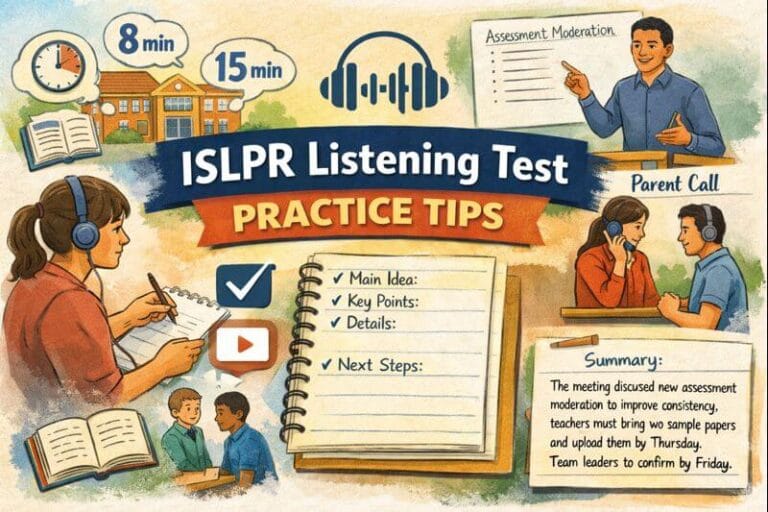In the realm of language proficiency assessments, two prominent examinations often come to mind: the International English Language Testing System (IELTS) and the International Second Language Proficiency Ratings (ISLPR).
While both serve the purpose of evaluating English language proficiency, there are distinct reasons why one might opt for the ISLPR over the IELTS. This essay delves into the rationale behind such a choice.
Fundamental Differences
Firstly, it’s essential to understand the fundamental differences between these assessments. The IELTS is a standardized test designed to assess the language ability of candidates who aim to study or work in environments where English is the primary language of communication. It comprises four components: Listening, Reading, Writing, and Speaking, each graded on a band scale.
On the other hand, the ISLPR is a holistic assessment system that evaluates various aspects of language proficiency through a combination of tasks, interviews, and observations, focusing on real-life language use rather than exam-oriented skills.
Emphasis on Communicative Competence
One significant factor influencing the decision to choose the ISLPR is its emphasis on communicative competence. Unlike the IELTS, which primarily evaluates language skills in an exam setting, the ISLPR assesses how well candidates can use English in authentic contexts.
This is particularly advantageous for individuals seeking to demonstrate their language proficiency for professional or academic purposes where effective communication is paramount.
By assessing a candidate’s ability to interact fluently and coherently in real-life situations, the ISLPR offers a more comprehensive evaluation of language proficiency.
Personalized Feedback
Furthermore, the ISLPR provides personalized feedback and recommendations tailored to each candidate’s strengths and areas for improvement. Unlike the IELTS, which provides a standardized score, the ISLPR assessment is conducted by trained assessors who provide detailed feedback on the candidate’s language performance.
This feedback not only helps candidates identify their linguistic strengths and weaknesses but also offers guidance on how to further develop their language skills. This individualized approach to assessment is particularly beneficial for learners who seek targeted feedback to enhance their language proficiency.
Flexibility and Customization
Moreover, the ISLPR offers greater flexibility and customization in terms of assessment format and content. While the IELTS follows a fixed structure with predetermined tasks and prompts, the ISLPR allows for a more tailored approach to assessment.
Candidates have the flexibility to choose from a range of assessment tasks and activities that best reflect their language proficiency and communication needs.
Whether it’s a simulated workplace interaction, an academic presentation, or a casual conversation, the ISLPR enables candidates to demonstrate their language proficiency in contexts that are relevant to their personal or professional goals.
Recognition by organizations and institutions
Another factor that may sway individuals towards the ISLPR is its recognition by certain organizations and institutions. While the IELTS is widely recognized and accepted by universities, employers, and immigration authorities in a number of countries, the ISLPR may be preferred by certain institutions that value its personalized approach to assessment.
Moreover, for individuals who have previously taken the IELTS and seek a more nuanced evaluation of their language proficiency, the ISLPR offers an alternative pathway to demonstrate their communicative competence.
Conclusion
In conclusion, the decision to choose the ISLPR over the IELTS is influenced by several factors, including its focus on communicative competence, personalized feedback, flexibility in assessment format, and recognition by certain institutions.
While the IELTS remains a popular choice for many candidates seeking to demonstrate their English language proficiency, the ISLPR offers a viable alternative for those who prioritize a holistic and personalized approach to assessment.
Ultimately, the choice between these assessments depends on the individual’s goals, preferences, and the specific requirements of the institutions or organizations they wish to apply to.







